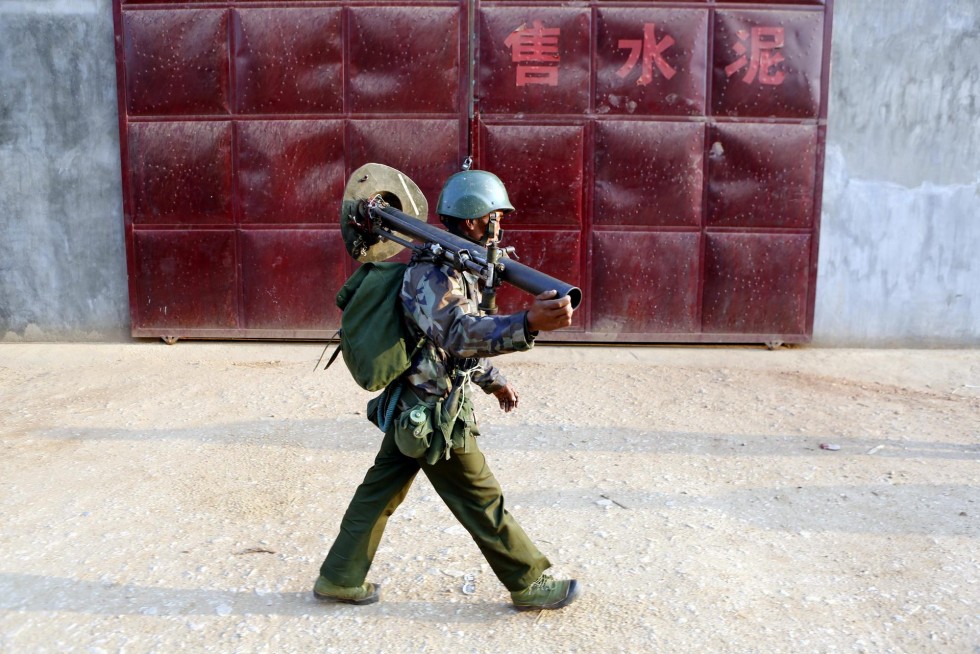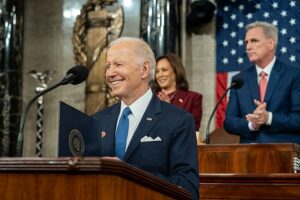Ethnic violence in Myanmar tampers promises of democracy

A Myanmese soldier carries a mortar in northeastern Shan state as he prepares for battle. Picture by Lynn Bo Bo | EPA

Since the military junta stepped down in 2011, Myanmar began a sustained process of political transformation. President Thein Sein’s administration has paved the way for a government-controlled transition to democracy. Though the post-junta government has engaged in reconciling talks with long-term political opponents and relaxed state control over media, its inability to halt ethnic violence threatens the success of this fast-tracked political reform. The ongoing ethnic strife jeopardizes Myanmar’s first elections in 25 years, which will take place on November 8. It also threatens Sein’s achievements, hampers Myanmar’s relations with its neighbors, and may endanger Myanmar’s democratic future altogether.
Ethnic tensions are ingrained in Myanmar’s complex state formation process. Disputes over governance, natural resource management, and self-determination today are a vestige of a British rule that ethnically divided the country and shaped the current conflicts. But the regime has done nothing to integrate the almost 150 ethnicities in the country. Rather, it has systematically failed to develop a non-exclusionary national identity, as the government still grants citizenship on ethnic grounds. This policy explains, for instance, the Rohingya Muslim plight in western Myanmar, where people of this ethnicity are not recognized citizens and are either being killed or pushed away of the country.
For half a century, ethnic groups in the eastern side of Myanmar such as the Kayins, Kachins, and Shans have challenged the Burman-led government’s centralizing efforts. These factions have specifically targeted offenses related to the state’s military, and control over local politics and economic activities. The post-junta government has tried to reach a national ceasefire treaty to end decades of ethnic conflict.
But the ambitious peace-building plan is far from complete as a new round of fighting surfaced earlier this year in Kokang, a self-administered Chinese-Han populated territory within the north-eastern state of Shan. The leading rebel group in the area, who calls itself the Myanmar National Democratic Alliance Army, has opposed the Burmese Army’s plan to institutionalize armed groups—considered a measure to neutralize ethnic fighters—as well as a law to ban poppy cultivation. Kokang is a major poppy growing region within the state of Shan, which is also the major opium producer in Myanmar.
Last February the guerrilla attacked government troops and seized strategic territory in Kokang. In response, Myanmar’s military increased the number of troops present in the region, launched air strikes, and compelled the Sein Administration to exclude the rebel group from a potential ceasefire agreement. The military’s involvement in the civilian government, regional drug trafficking supply chains, and continued ethnic quarrel for federalism are central to understand these developments.
The current conflict impairs Myanmar’s transformation because two of the largest ethnic forces—Kachin Independence Organization and the Wa Army—refused to sign a nation-wide ceasefire treaty that excludes the resistance. The military campaign has displaced 30,000 Kokangs across the border with China and recent airstrikes killed three Chinese nationals, causing tension between Beijing and Naypyidaw, Myanmar’s capital. Still powerful, the Military attempted to postpone the upcoming elections over instability claims in these regions. If Myanmar’s government is unable to reach a comprehensive ceasefire with all actors involved, the Tatmadaw will likely push to declare a state of emergency to address the undergoing confrontations.
Sein is unlikely to limit the military presence in Myanmar’s government in the short-term. But the administration could make an economic concession in Kokang to appease the militarized opposition and halt violence to eventually reach ceasefire. By sharing the profits of minerals and metals exploitation with local Kokang leadership, Myanmar could also assert a sense of local self-sufficiency and administration in the Shan state. To achieve a comprehensive ceasefire, the government must make strategic concessions that guarantee inclusion of the main armed groups within its framework.
Elections will not make Myanmar a democracy, but securing domestic stability through non-violent methods of inclusion will steer Myanmar away from its tragic past and set its course toward becoming a nascent democracy.
Carlos is a Chinese and Russian History teacher. He graduated from the Universidad Iberoamericana in Mexico City, where he obtained a B.A. in History. He has been admitted to the M.A. in International Relations at New York University.





